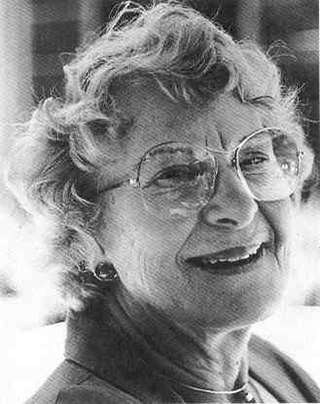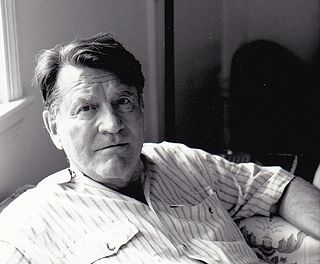Hypnotherapy is a type of mind–body intervention in which hypnosis is used to create a state of focused attention and increased suggestibility in the treatment of a medical or psychological disorder or concern.

Psychotherapy is the use of psychological methods, particularly when based on regular personal interaction, to help a person change behavior, increase happiness, and overcome problems. Psychotherapy aims to improve an individual's well-being and mental health, to resolve or mitigate troublesome behaviors, beliefs, compulsions, thoughts, or emotions, and to improve relationships and social skills. Numerous types of psychotherapy have been designed either for individual adults, families, or children and adolescents. Certain types of psychotherapy are considered evidence-based for treating some diagnosed mental disorders; other types have been criticized as pseudoscience.
Group psychotherapy or group therapy is a form of psychotherapy in which one or more therapists treat a small group of clients together as a group. The term can legitimately refer to any form of psychotherapy when delivered in a group format, including art therapy, cognitive behavioral therapy or interpersonal therapy, but it is usually applied to psychodynamic group therapy where the group context and group process is explicitly utilized as a mechanism of change by developing, exploring and examining interpersonal relationships within the group.
Neuro-linguistic programming (NLP) is a pseudoscientific approach to communication, personal development and psychotherapy, that first appeared in Richard Bandler and John Grinder's 1975 book The Structure of Magic I. NLP asserts that there is a connection between neurological processes (neuro-), language (linguistic) and acquired behavioral patterns (programming), and that these can be changed to achieve specific goals in life. According to Bandler and Grinder, NLP can treat problems such as phobias, depression, tic disorders, psychosomatic illnesses, near-sightedness, allergy, the common cold, and learning disorders, often in a single session. They also claim that NLP can "model" the skills of exceptional people, allowing anyone to acquire them.

Milton Hyland Erickson was an American psychiatrist and psychologist specializing in medical hypnosis and family therapy. He was the founding president of the American Society for Clinical Hypnosis. He is noted for his approach to the unconscious mind as creative and solution-generating. He is also noted for influencing brief therapy, strategic family therapy, family systems therapy, solution focused brief therapy, and neuro-linguistic programming.

Virginia Satir was an American author and psychotherapist, recognized for her approach to family therapy. Her pioneering work in the field of family reconstruction therapy honored her with the title "Mother of Family Therapy". Her most well-known books are Conjoint Family Therapy, 1964, Peoplemaking, 1972, and The New Peoplemaking, 1988.

Richard Wayne Bandler is an American consultant in the field of self-help. With John Grinder, he founded the neuro-linguistic programming (NLP) approach to psychotherapy in the 1970s.
Reality therapy (RT) is an approach to psychotherapy and counseling. Developed by William Glasser in the 1960s, RT differs from conventional psychiatry, psychoanalysis and medical model schools of psychotherapy in that it focuses on what Glasser calls psychiatry's three Rs: realism, responsibility, and right-and-wrong, rather than symptoms of mental disorders. Reality therapy maintains that the individual is suffering from a socially universal human condition rather than a mental illness. It is in the unsuccessful attainment of basic needs that a person's behavior moves away from the norm. Since fulfilling essential needs is part of a person's present life, reality therapy does not concern itself with a client's past. Neither does this type of therapy deal with unconscious mental processes.
Solution-focused (brief) therapy (SFBT) is a goal-directed collaborative approach to psychotherapeutic change that is conducted through direct observation of clients' responses to a series of precisely constructed questions. Based upon social constructivist thinking and Wittgensteinian philosophy, SFBT focuses on addressing what clients want to achieve without exploring the history and provenance of problem(s). SF therapy sessions typically focus on the present and future, focusing on the past only to the degree necessary for communicating empathy and accurate understanding of the client's concerns.

Narrative therapy is a form of psychotherapy that seeks to help patients identify their values and the skills associated with them. It provides the patient with knowledge of their ability to live these values so they can effectively confront current and future problems. The therapist seeks to help the patient co-author a new narrative about themselves by investigating the history of those values. Narrative therapy is a social justice approach to therapeutic conversations, seeking to challenge dominant discourses that shape people's lives in destructive ways. While narrative work is typically located within the field of family therapy, many authors and practitioners report using these ideas and practices in community work, schools and higher education. Narrative therapy has come to be associated with collaborative as well as person-centered therapy.
Behaviour therapy or behavioural psychotherapy is a broad term referring to clinical psychotherapy that uses techniques derived from behaviourism and/or cognitive psychology. It looks at specific, learned behaviours and how the environment, or other people's mental states, influences those behaviours, and consists of techniques based on behaviorism's theory of learning: respondent or operant conditioning. Behaviourists who practice these techniques are either behaviour analysts or cognitive-behavioural therapists. They tend to look for treatment outcomes that are objectively measurable. Behaviour therapy does not involve one specific method, but it has a wide range of techniques that can be used to treat a person's psychological problems.

Jay Douglas Haley was one of the founding figures of brief and family therapy in general and of the strategic model of psychotherapy, and he was one of the more accomplished teachers, clinical supervisors, and authors in these disciplines.
Motivational therapy is a combination of humanistic treatment and enhanced cognitive-behavioral strategies, designed to treat substance use disorders. It is similar to motivational interviewing and motivational enhancement therapy.
Interpersonal psychotherapy (IPT) is a brief, attachment-focused psychotherapy that centers on resolving interpersonal problems and symptomatic recovery. It is an empirically supported treatment (EST) that follows a highly structured and time-limited approach and is intended to be completed within 12–16 weeks. IPT is based on the principle that relationships and life events impact mood and that the reverse is also true. It was developed by Gerald Klerman and Myrna Weissman for major depression in the 1970s and has since been adapted for other mental disorders. IPT is an empirically validated intervention for depressive disorders, and is more effective when used in combination with psychiatric medications. Along with cognitive behavioral therapy (CBT), IPT is recommended in treatment guidelines as a psychosocial treatment of choice for depression.
John H. Weakland was one of the founders of brief and family psychotherapy. At the time of his death, he was a senior research fellow at the Mental Research Institute (MRI) in Palo Alto, California, co-director of the famous Brief Therapy Center at MRI, and a clinical associate professor emeritus in the Department of Psychiatry and Behavioral Sciences at the Stanford University School of Medicine.
Status Dynamic Psychotherapy (SDT) is an approach to psychotherapy that focuses on changing a client's "statuses", whether they be career related, personal or social in nature. SDT is characterized by its lack of focus on factors traditionally targeted by psychotherapy such as the client's behaviors and cognitions, and how unconscious factors come into play. SDT was created by Peter G. Ossorio at the University of Colorado in the late 1960s as part of a larger system known as "descriptive psychology".
Supportive psychotherapy is a psychotherapeutic approach that integrates various therapeutic schools such as psychodynamic and cognitive-behavioral, as well as interpersonal conceptual models and techniques.
Family therapy is a branch of psychology and clinical social work that works with families and couples in intimate relationships to nurture change and development. It tends to view change in terms of the systems of interaction between family members.

Richard Fisch (1926–2011) was an American psychiatrist best known for his pioneering work in brief therapy.
Paradox psychology is a counter-intuitive approach that is primarily geared toward addressing treatment resistance. The method of paradoxical interventions (pdxi) is more focused, rapid, and effective than Motivational Interviewing. In addressing resistance, the method seeks to influence the clients' underlying attitude and perception by providing laser beam attention on strengthening the attachment-alliance. This is counter-intuitive to traditional methods since change is usually directed toward various aspects of behavior, emotions, and thinking. As it turns out, the better therapy is able to strengthen the alliance, the more these aspects of behavior will change.






